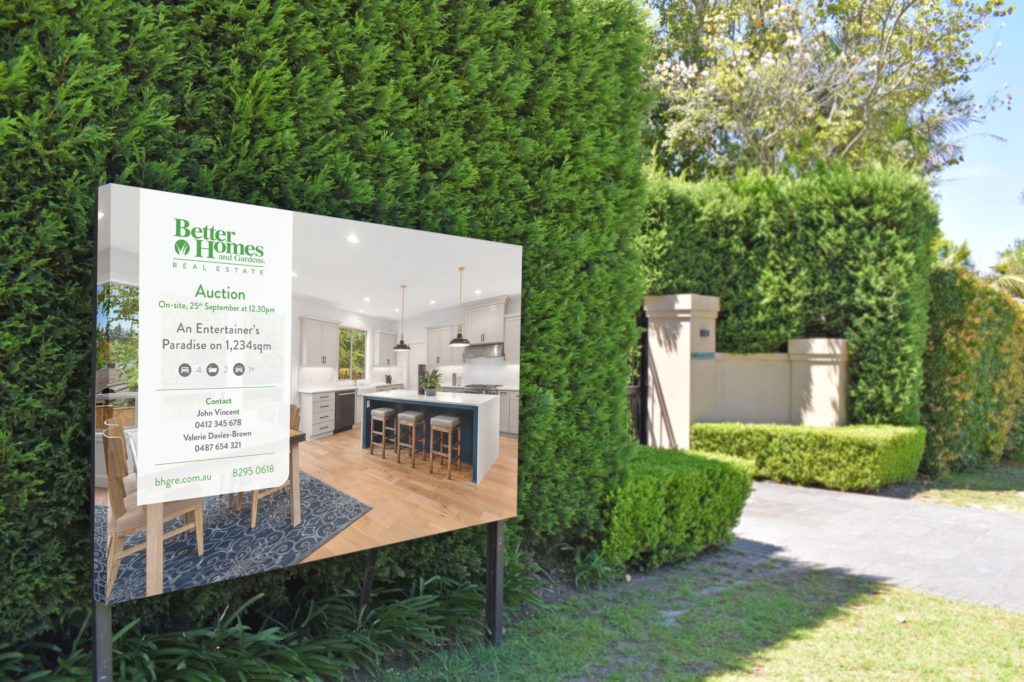Auctions are both an exhilarating and nerve-wracking experience for buyers and sellers alike. From the thrill of the win (and even the chase!) to the fear of missing out, as well as the anticipation as the bids rise or waver – it all adds up to a rollercoaster of emotions. Between the beginning of the day and the final fall of the hammer, a lot goes on at an auction. Here’s everything you need to know about the auction process.
From a buyer’s perspective
You came with one mission: to walk away the proud owner of the property (at a reasonable price, of course). But how can you make that dream a reality? Follow these tips.
Before the auction: If you’ve never bid at an auction before (and even if you have!), they can be an intimidating experience. The best thing you can do pre-auction is to see a few in action. “Attend as many auctions in the area as you can and familiarise yourself with the process around the way auctions work,” recommends Michelle Delaney, CEO of Better Homes and Gardens Real Estate in Australia. “Sometimes it can be daunting or you can get caught up in the euphoria,” she adds. Attending other auctions will help you get a feel for how the day will run, the different tactics auctioneers use (spoiler: most will say ‘going once, going twice’ a lot!), and various buyer strategies.
Make sure you get your finances in order ahead of the day, too. If you are the highest bidder, you’ll have to pay the deposit on the spot.
The auction rules for buyers: In Australia, each state has different rules and regulations for bidding at an auction, so make sure you are familiar with them. However Australia-wide, auctions are unconditional with no cooling-off period and the contract must be signed and the deposit paid immediately after the auction ends. Vendor bids also need to be announced and the highest bidder always has the first right to negotiate if the property’s reserve price isn’t reached.
Your bidding strategy: There are a lot of different strategies for bidding at an auction, and all come with varying success. The biggest thing to remember is that if the bidding goes past your maximum price, it’s time to call it a day. “As a buyer, ensure you understand your financial limits,” says Delaney. “Auctions can be infectious!”
A popular bidding strategy is to hold off on entering the bidding race until it slows down and most of the competition is knocked out. Conversely, starting off the bidding with a strong number will quickly weed out those with below-market value budgets. Always place your bid with confidence.
From a seller’s perspective
If you think your job is the easy one – sitting back and waiting for your real estate agent and auctioneer to do all the work, you’d be (mostly) right. But that doesn’t mean you won’t be a bundle of nerves. Familiarising yourself with how the process works and having a strong line of communication with your real estate agent will ensure the auction runs smoothly.

Getty
Before the auction: An important step before auction day is deciding on your reserve price. While you will have already set a ballpark figure from the moment you decided to sell, now you need to come up with a firm minimum number that you’re willing to accept. It’s important to listen to market feedback when setting your reserve price. Setting a realistic price that reflects what the market is willing to pay for a property like yours, in your location, will ensure the most success on auction day. Your real estate agent should have a good grasp on what this number is based on their conversations with potential buyers who attended the open inspections.
Talk to your real estate agent about their planned strategy for the day and how the process will run, especially if no one bids or your reserve isn’t met, so you know what to expect.
On auction day: Delaney recommends attending the auction so you can get a sense first-hand how things are going. “The auction process can often be something that a seller may shy away from; this is a common mistake because if a seller attends they can feel the speed or buyer activity and are then in a position to make a more educated decision based on those factors.”
Should the property be passed in, you can enter into private negotiations with the highest bidder. If you can’t come to an agreement, your real estate agent can open up negotiations with the other bidders.
If you’re still unable to reach a number that you’re happy with, don’t stress. Passed in properties can still sell in the weeks following an auction, for a good price. Some buyers can’t meet the unconditional contract of an auction so a private sale may be more suited to their situation.
Disclaimer: The opinions posted within this blog are those of the writer and do not necessarily reflect the views of Better Homes and Gardens® Real Estate, others employed by Better Homes and Gardens® Real Estate or the organisations with which the network is affiliated. The author takes full responsibility for his opinions and does not hold Better Homes and Gardens® Real Estate or any third party responsible for anything in the posted content. The author freely admits that his views may not be the same as those of his colleagues, or third parties associated with the Better Homes and Gardens® Real Estate network.





